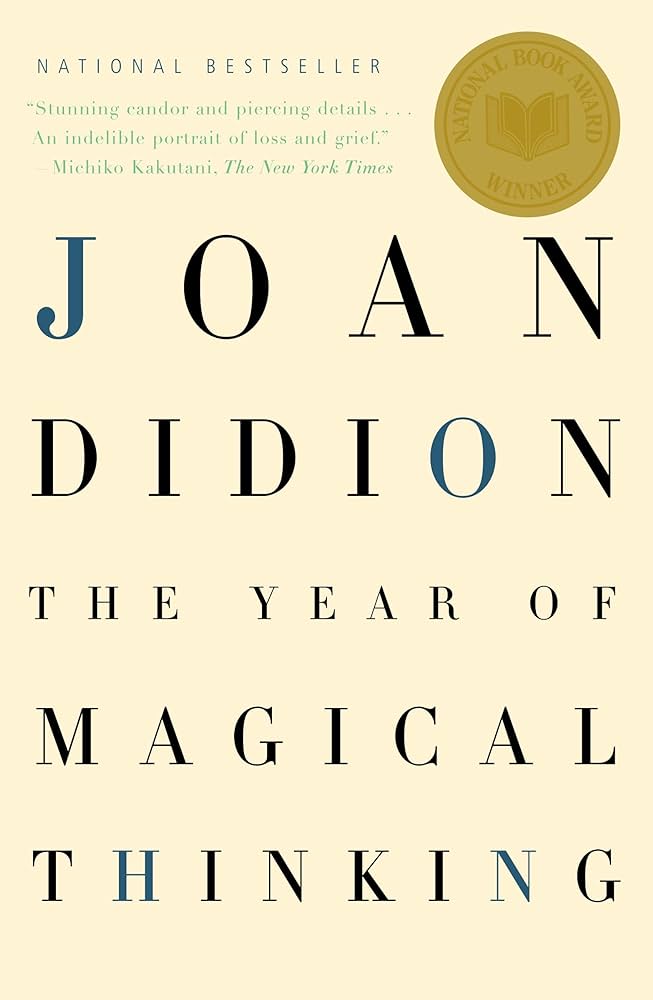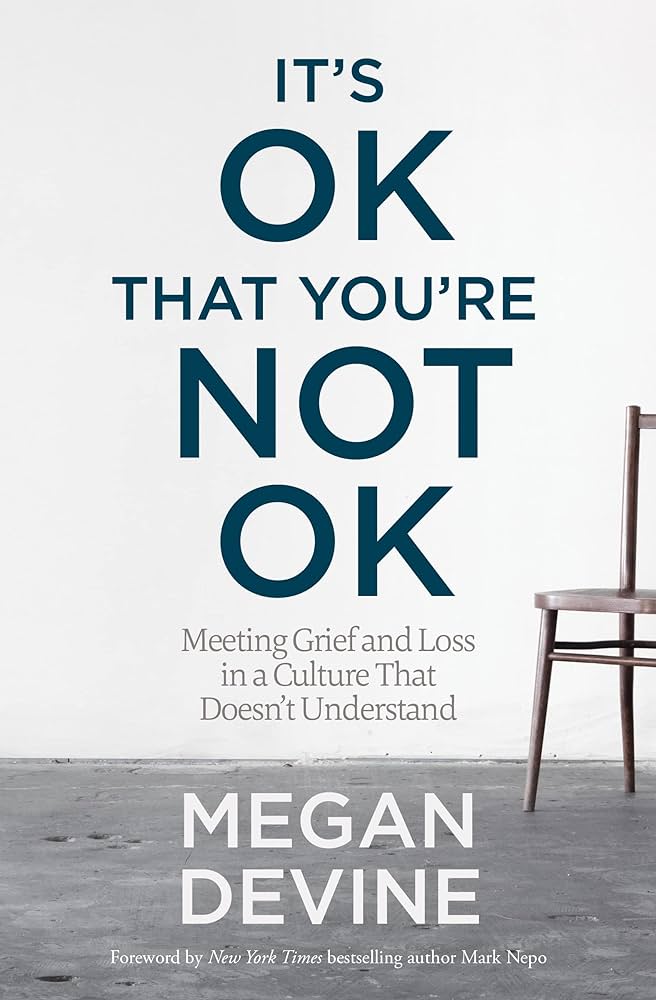Intro
When we experience loss, it can be difficult to navigate the complex emotions that come with grief. In these moments of darkness, finding solace in the pages of a book can offer a ray of hope and a path towards healing. Grief Books are powerful tools that can provide comfort, understanding, and guidance during times of sorrow. In this blog post, I will share my top 5 Grief Books that have personally helped me on my own healing journey.
The Transformative Power of Reading During Grief


Navigating through grief is a profoundly personal and, at times, a solitary journey. The emotions that accompany loss are as complex as they are unique, making it challenging for many to share their experiences or seek comfort in conversation. It is within this context that reading plays a transformative role, offering solace and understanding that might be hard to find elsewhere.
Grief Books serve as silent companions that understand without needing explanations, offering solace through shared experiences and wisdom from those who have also felt profound loss. These books have a remarkable way of putting into words the emotions and thoughts that may seem indescribable, providing a sense of validation and understanding that is deeply comforting. By reading about grief, we are given the language to articulate our own feelings, allowing us to process our emotions more fully.
The power of literature to comfort and heal is not just in the sharing of similar experiences but in the way stories and insights can illuminate aspects of our grief we might not have recognized or understood. Through the perspectives offered in these pages, we can begin to see our situation in a new light, discovering coping mechanisms and gaining insights that help us navigate our path through loss. This can be particularly empowering when we feel stuck or when our grief seems incomprehensible even to ourselves.
Moreover, Grief Books can introduce us to a community of voices, spanning different backgrounds and experiences, yet united in the universal process of grieving. This silent solidarity can be profoundly reassuring; knowing that others have endured similar pain and found a way through can offer hope in our darkest moments. These narratives encourage us to embrace our vulnerability and find strength in the resilience of the human spirit.
In addition to personal narratives and memoirs, many Grief Books provide practical advice and exercises designed to support readers through their healing process. These resources encourage active engagement with our grief, prompting reflection, understanding, and, ultimately, growth. Whether through journaling prompts, mindfulness exercises, or therapeutic insights, these activities invite us to interact with our grief in constructive ways, fostering healing and self-compassion.
Reading during grief, therefore, is not just an act of seeking comfort; it’s a step towards healing. It offers a way to connect with others, understand our emotions, and find a path forward. As we turn each page, we are reminded that while the pain of loss is a part of life, so too is the capacity for healing and hope.
How Grief Books Can Offer Comfort and Clarity
In the swirling turmoil that often accompanies the journey through grief, finding a foothold can feel daunting. Grief Books, with their myriads of voices and experiences, offer a beacon of light in such times. They provide a platform for reflection and understanding, allowing individuals to see their own grief mirrored in the stories of others. This reflection can bring a profound sense of comfort, as it reassures us that we are not alone in our experiences of loss and mourning.
These books also serve as a guide through the labyrinth of our emotions, offering clarity when our own thoughts seem muddled by sorrow. By presenting different perspectives on grief, they help dismantle the isolation that often comes with loss, breaking down the barriers we might feel in expressing our pain. Through the pages of these books, we’re offered glimpses into the coping mechanisms and strategies that others have found helpful, providing us with options we might not have considered.
The narratives and insights shared within Grief Books often lead us to a better understanding of our grieving process. They challenge us to confront our emotions head-on, but they do so with gentleness and compassion, guiding us towards a path of self-compassion and understanding. In doing so, they offer a clarity that can be hard to find elsewhere — the assurance that grief, though deeply personal, follows certain universal patterns. Recognizing these patterns in ourselves and others can make our own grief feel more navigable.
Additionally, these books can dispel the myths and stigmas surrounding grief, offering instead a more nuanced and comprehensive view of what it means to mourn. Through the shared wisdom of authors who’ve navigated their own paths through loss, readers can find permission to grieve in ways that are true to their own experiences. This normalization of grief’s myriad forms provides a clarity that is deeply healing, affirming the validity of all experiences of loss.
Ultimately, the comfort and clarity found in Grief Books stem from their ability to connect us — to ideas, to stories, and to each other. They remind us that, even in our darkest moments, growth and healing are possible. In the pages of these books, we find not only guidance and understanding but also hope — a reminder that even in grief, we are not alone.
My Top 5 Grief Books and What Makes Them Special
Navigating the path through grief and loss is a deeply personal experience, and finding resources that resonate with your journey can be a beacon of light in times of darkness. The following five books on grief have been carefully selected for their unique perspectives, their ability to touch the heart, and their empowering messages of resilience and hope. Each book offers something special, providing comfort, insight, and the gentle reminder that you are not alone.


The Year of Magical Thinking by Joan Didion – This poignant memoir captures the intense and sudden nature of grief with stark honesty and eloquence. Didion shares her journey through the year following her husband’s death, offering readers a deeply personal look at the reality of profound loss. Her exploration of memory, love, and the shifts in perception that come with grieving are both relatable and profoundly moving, making this book a touchstone for anyone facing the unimaginable.


Tear Soup: A Recipe for Healing After Pross by Pat Schwiebert and Chuck DeKlyen** – With its unique metaphor of making soup, this illustrated book offers a profound yet accessible reflection on the grieving process. It validates the wide range of emotions that come with loss and encourages the reader to take their time “cooking” their own batch of “tear soup.” This book’s special appeal lies in its simplicity and depth, making it suitable for readers of all ages.


It’s OK That You’re Not OK: Meeting Grief and Loss in a Culture That Doesn’t Understand by Megan Devine – This book challenges societal norms around grief and provides a fresh perspective on the process of healing. Devine, a psychotherapist and grief advocate, offers an honest and validating approach to grief, emphasizing that it’s okay to not be okay. Her compassionate insights help dismantle the isolation many feel in their grief, offering solace and understanding.


Facing Adversity, Building Resilience, and Finding Joy by Sheryl Sandberg and Adam Grant – Co-authored by Facebook COO Sheryl Sandberg, this book delves into the aftermath of her husband’s sudden death and her path towards finding resilience in the face of despair. It combines personal anecdotes with psychological research, providing actionable advice for building resilience and finding a way forward. This book stands out for its practical approach to handling loss while fostering hope and strength.
Incorporating These Books into Your Healing Journey
Embarking on a journey through grief can often feel like navigating uncharted waters, with each wave of emotion bringing its own set of challenges. The Grief Books recommended in this post are akin to guiding stars, offering light and direction during the darkest nights of the soul. As you turn to these pages for comfort and understanding, it’s important to remember that healing is deeply personal, and there’s no right or wrong way to approach it.
Dive into each book with the understanding that your reaction to the stories and advice within may vary. Some passages might resonate deeply, providing immediate comfort or insight, while others might not seem applicable to your experience right now—and that’s perfectly okay. Healing doesn’t follow a linear path, and what doesn’t hold meaning for you today may become profoundly impactful tomorrow.
Creating space for reflection is crucial when exploring these Grief Books. Consider keeping a journal nearby as you read. Writing down your thoughts and emotions can help process the grief, making the intangible feelings of loss more concrete and manageable. Journaling can serve as a personal dialogue with yourself, where you’re free to express all your sorrows, fears, joys, and revelations without judgment.
Additionally, engaging with a community—whether it’s friends, family, or a support group—can enrich your healing journey. Sharing insights or meaningful quotes from these books with others can open avenues for conversations about grief that might otherwise feel too difficult to initiate. It’s in these shared spaces of vulnerability that many find additional strength and understanding.
As you weave the wisdom from these Grief Books into the fabric of your life, allow yourself the grace to heal at your own pace. Each book you read is not just a source of comfort, but a companion on your path toward healing. By actively engaging with their content, reflecting on their messages, and connecting with others, you are taking meaningful steps towards finding peace and resilience in the aftermath of loss. Remember, your journey through grief is unique, and embracing these resources is a testament to your strength and your commitment to healing.
Beyond the Page: Additional Resources and Support for Grieving
While the journey through grief is profoundly personal, finding your way through it doesn’t have to be a solitary endeavor. The exploration and insights gained from Grief Books provide a foundation of understanding and empathy, yet complementing this reading with additional resources can further support and enrich your healing process.
Reaching out for additional support can manifest in various forms, each offering unique benefits. Grief support groups, like the Grieving Gracefully Circle for example, bring together individuals who are navigating similar experiences of loss. We have created a safe and understanding environment where you can share your story, listen to others, and find comfort in the knowledge that you are not navigating your grief alone. Many find that this shared experience fosters a sense of community and understanding that is profoundly healing. Click here to learn more.
Therapy sessions with professionals specializing in grief counseling offer another avenue of support. A therapist can provide a one-on-one setting to explore the depths of your grief, offering personalized strategies and therapeutic techniques to assist in your healing journey. This tailored approach can help address specific aspects of your grief, offering insights and coping mechanisms that are most relevant to your individual needs.
In today’s digital age, online forums and social media groups dedicated to grief and loss have become increasingly accessible. These platforms offer a space to connect with others from the comfort of your own home, at any time that suits you. Sharing stories, asking for advice, or simply reading about others’ experiences can provide a sense of solidarity and understanding that is both comforting and empowering. Click here to follow Grieving Gracefully to help support you with your grief.
Lastly, consider the healing power of creative expression. Engaging in activities such as writing, art, or music can be a therapeutic outlet for your emotions. Many find that expressing their grief through creative mediums helps to process and make sense of their feelings, providing a tangible way to honor their loss and move forward.
As you navigate the complex terrain of grief, remember that these resources are not mutually exclusive. Combining the insights gained from Grief Books with the support of groups, therapy, online communities, and creative expression can offer a holistic approach to healing. Each step you take, whether it’s turning a page or reaching out for support, is a courageous act of self-care and a stride toward healing.
